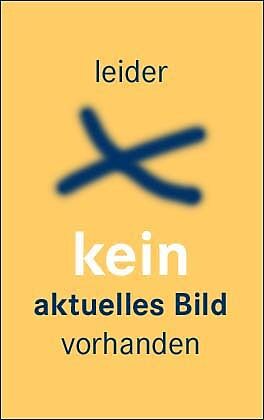Design Patterns Smalltalk Companion, The
Einband:
Fester Einband
EAN:
9780201184624
Untertitel:
Englisch
Genre:
Programmiersprachen
Autor:
Bobby Woolf, Sherman Alpert, Kyle Brown
Herausgeber:
Pearson Academic
Anzahl Seiten:
444
Erscheinungsdatum:
01.10.1998
ISBN:
978-0-201-18462-4
When the classic book Design Patterns was first published in 1994, the landscape of object-oriented software engineering was forever changed. The 23 patterns contained in the seminal work vastly improved the discipline of object-oriented software design. That book, and the concepts it presented, allowed software professionals to solve specific design problems by reusing successful designs. Design Patterns was a gift to the world of software development, yet Smalltalk programmers could not take full advantage of the book's popular ideas because most of the original patterns were presented from a C++ perspective. In The Design Patterns Smalltalk Companion, the classic work has been tailored and enhanced to address the specific needs of the Smalltalk programmer. The catalog of simple and succinct solutions has been written in Smalltalk code, and the material is discussed from the perspective of the Smalltalk programmer. The full source code that supports the 23 patterns is also available via the Addison-Wesley Web site. Assembled and written in close conjunction with the authors of Design Patterns, this is the definitive patterns reference for those programming in Smalltalk. This book provides efficient solutions to your Smalltalk design problems, ultimately helping you become a better software designer. Updates/errata p. 112, bottom of page (last 2 lines): currently reads: "...it obtains them using the following application-supplied message" should be: "...it obtains them using the application-supplied message, as follows" p. 122, figure: RefinedAbstractionA and RefinedAbstractionB should be italicized (they're abstract classes). p. 123, figure: EsBucketSet and EsHashSet should be italicized. p. 297, figure, upper left box: currently reads: "Originato" should be: "Originator" p. 350, figure at bottom of page, lower left box: currently reads: "mortgag" should be: "mortgage
Autorentext
Sherman Alpert has been designing and programming advanced technology applications in Smalltalk since 1987 at IBM's T. J. Watson Research Center. Kyle Brown is currently an Executive Java Consultant with IBM WebSphere Services. Bobby Woolf is coauthor of The Design Patterns Smalltalk Companion (Addison-Wesley, 1998), and author of articles in IBM DeveloperWorks, Java Developer's Journal, and elsewhere. He has been a tutorial presenter at OOPSLA, JavaEdge, and Smalltalk Solutions, among other conferences.
0201184621AB09122003
Klappentext
"This is a GREAT book, very readable and also dense with content, one that even experienced Smalltalkers like myself will benefit from."
- Dave Collins, author of Designing Object-Oriented User Interfaces "This book adds value to the Gang of Four Design Patterns book. . . . The authors have found a good way to blend the Smalltalk discussions with the GoF pattern descriptions."
- Erich Gamma, coauthor of Design Patterns: Elements of Reusable Object-Oriented Software When the classic book Design Patterns was first published in 1994, the landscape of object-oriented software engineering was forever changed. The 23 patterns contained in the seminal work vastly improved the discipline of object-oriented software design. That book, and the concepts it presented, allowed software professionals to solve specific design problems by reusing successful designs. Design Patterns was a gift to the world of software development, yet Smalltalk programmers could not take full advantage of the book's popular ideas because most of the original patterns were presented from a C++ perspective. In The Design Patterns Smalltalk Companion, the classic work has been tailored and enhanced to address the specific needs of the Smalltalk programmer. The catalog of simple and succinct solutions has been written in Smalltalk code, and the material is discussed from the perspective of the Smalltalk programmer. The full source code that supports the 23 patterns is also available via the Addison-Wesley Web site. Assembled and written in close conjunction with the authors of Design Patterns, this is the definitive patterns reference for those programming in Smalltalk. This book provides efficient solutions to your Smalltalk design problems, ultimately helping you become a better software designer.
0201184621B04062001
Zusammenfassung
In this book, intended as a language companion to Design Patterns: Elements of Reusable Object-Oriented Software by Gamma, Helm, Johnson & Vlissides, noted Smalltalk and design patterns experts implement the 23 design patterns using Smalltalk code. Using the same successful format as Design Patterns, this book tailors the topic of design patterns to the Smalltalk programmer - no other book offers this. The authors have worked closely with the Design Patterns authors to ensure that this companion volume is held to the same high quality standards that made the original a best-seller. The full source code is available on Addison-Wesley's web site.
Inhalt
Foreword.
Preface.
1. Introduction.
2. Aha!
3. Creational Patterns.
Abstract Factory (DP 87).Builder (DP 97).Factory Method (DP 107).Prototype (DP 117).Singleton (DP 127).
4. Structural Patterns.
Adapter (DP 139).Bridge (DP 151).Composite (DP 163).Decorator (DP 175).Facade (DP 185).Flyweight (DP 195).Proxy (DP 207).
5. Behavioral Patterns.
Chain of Responsibility (DP 223).Command (DP 233).Interpreter (DP 243).Iterator (DP 257).Mediator (DP 273).Memento (DP 283).Observer (DP 293).State (DP 305).Strategy (DP 315).Template Method (DP 325).Visitor (DP 331).
6. Conclusion.
References.
Index. 0201184621T04062001

Leider konnten wir für diesen Artikel keine Preise ermitteln ...
billigbuch.ch sucht jetzt für Sie die besten Angebote ...
Die aktuellen Verkaufspreise von 6 Onlineshops werden in Realtime abgefragt.
Sie können das gewünschte Produkt anschliessend direkt beim Anbieter Ihrer Wahl bestellen.
Loading...
Die aktuellen Verkaufspreise von 6 Onlineshops werden in Realtime abgefragt.
Sie können das gewünschte Produkt anschliessend direkt beim Anbieter Ihrer Wahl bestellen.
| # | Onlineshop | Preis CHF | Versand CHF | Total CHF | ||
|---|---|---|---|---|---|---|
| 1 | Seller | 0.00 | 0.00 | 0.00 |
